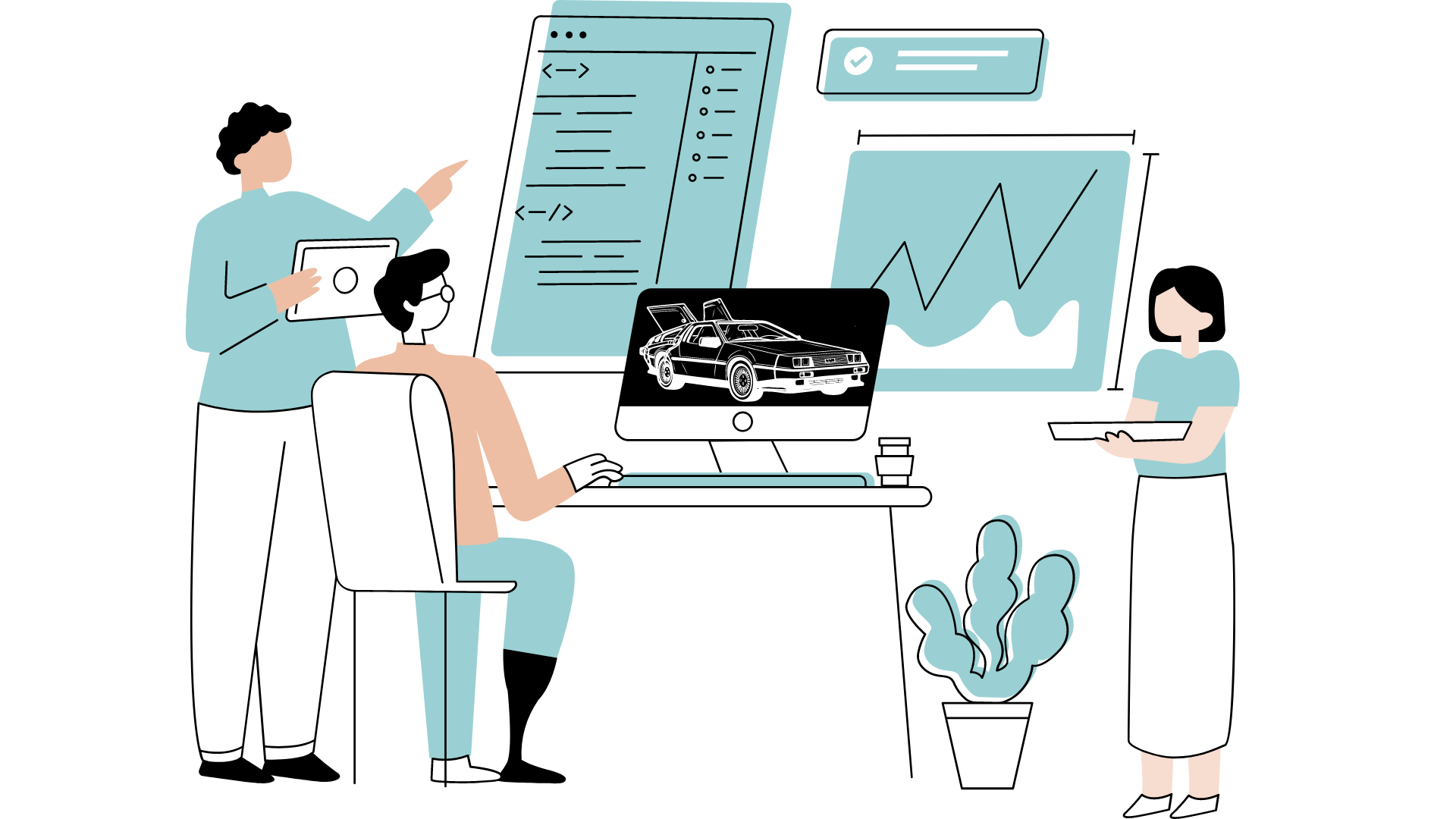The Critical Difference Between UI and UX in Digital Asset Management

In the realm of Digital Asset Management (DAM) software, the allure of a sleek user interface (UI) can be captivating. After all, who doesn't appreciate an aesthetically pleasing design? However, beneath the surface, the true measure of success lies in the user experience (UX). While a great UI may catch the eye, it's the usability and functionality that brings value to the DAM platform and drives adoption throughout an organization.
To illustrate this point, consider the analogy of the DMC DeLorean, immortalized in the Back to the Future movies. With its iconic gull-wing doors and stainless steel body, the DeLorean boasted an impressive UI. Yet, despite its visual appeal, the car was plagued by mechanical issues, resulting in a dismal user experience. In the end, the flashy exterior couldn't compensate for the frustration of a dysfunctional vehicle and the company ultimately went bankrupt, leaving customers with an unusable, unsupported product.
Similarly, when evaluating DAM software, it's essential to prioritize UX over mere aesthetics. While a modern UI may garner praise from stakeholders, it's the underlying UX that determines the system's effectiveness in facilitating workflows and driving productivity and ROI.
Here are key considerations to ensure a DAM system offers a superior user experience:
- Configurable UI: Look for DAM software that allows for UI customization. This enables users to tailor the interface to their specific needs and preferences, enhancing usability and efficiency. Teams will typically have different opinions on UI, so find a solution that can give every team what they’re looking for in both UI and UX.
- Streamlined Workflows: Assess the efficiency of basic tasks within the DAM system. How many steps are required to select and download assets in the desired format, size, and colorspace? Can you even preform all of the basic use cases you’ve laid out? Excessive clicks and convoluted processes are indicative of poor UX, hindering productivity. Complicated workflows often result in broken processes, which lead to delays, frustration, and ultimately missed deadlines.
- Automation Capabilities: Evaluate whether the vendor offers automation features for tasks such as metadata tagging, video transcription, and even asset routing to different teams for approvals. Automation streamlines workflows, reducing manual intervention and enhancing user satisfaction, allowing DAM admins to focus on the valuable tasks like user onboarding and improving user adoption.
- Comprehensive Asset Detail: Ensure that the DAM software provides a centralized view of asset information, including metadata, associated files, permissions, and usage rights. Easy access to relevant data minimizes the need for users to navigate through multiple screens, improving their ability to get everything they need, which allows them to be self-serving and not a burden to the Admin, who often ends up curating this information when users can’t easily access it.
- Seamless Integrations: Consider the scalability of the DAM software and its compatibility with existing systems. Does the vendor offer robust integrations and APIs to support future growth and expansion? A system's ability to evolve as your organization expands, changes, and grows, will keep processes simple so your teams can focus on driving value with or through assets, not working around systems.
Ultimately, while a visually appealing UI may initially impress users, it can not overcome the frustration users feel when they encounter broken workflows, a system that struggles to handle large file formats, and finability issues that will increase user dissatisfaction and hinder user adoption. By prioritizing usability, efficiency, and functionality, organizations can ensure that their DAM investment yields tangible benefits and enhances productivity across teams.
When choosing DAM software and tools, don't be swayed solely by surface-level aesthetics. Instead, focus on selecting a solution that prioritizes usability and delivers a seamless user experience. By doing so, you'll empower your team with a tool that not only looks good, but also works flawlessly, driving success in your digital asset management platform.
To learn more about the Orange DAM platform and it's configurable UI and media asset management features, schedule a call!
Bring it all together with an intuitive, composable DAM platform.
OrangeDAM is an Enterprise Digital Asset Management Platform built to grow and adapt with your organization's evolving workflows.
- 130+ DAM tools
- Tailored dashboards and user-interfaces for every user
- Unlimited digital asset storage on any cloud-provider or BYOS

.webp?width=60&height=60&name=IMG_5007%20(1).webp)
